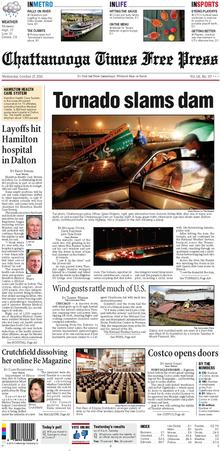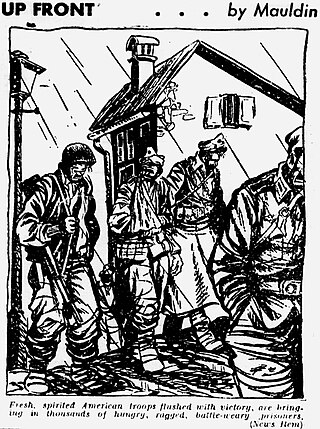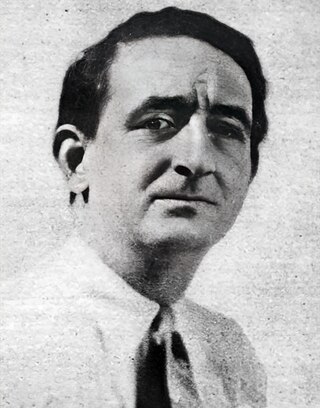
The Pulitzer Prize for Editorial Writing is one of the fourteen American Pulitzer Prizes that are annually awarded for Journalism. It has been awarded since 1917 for distinguished editorial writing, the test of excellence being clearness of style, moral purpose, sound reasoning, and power to influence public opinion in what the writer conceives to be the right direction. Thus it is one of the original Pulitzers, for the program was inaugurated in 1917 with seven prizes, four of which were awarded that year. The program has also recognized opinion journalism with its Pulitzer Prize for Editorial Cartooning from 1922.

The Pulitzer Prize for Public Service is one of the fourteen American Pulitzer Prizes annually awarded for journalism. It recognizes a distinguished example of meritorious public service by a newspaper or news site through the use of its journalistic resources, which may include editorials, cartoons, photographs, graphics, video and other online material, and may be presented in print or online or both.

The Detroit Free Press is the largest daily newspaper in Detroit, Michigan, US. The Sunday edition is titled the Sunday Free Press. It is sometimes referred to as the Freep. It primarily serves Wayne, Oakland, Macomb, Livingston, Washtenaw, and Monroe counties.

The Sun was a New York newspaper published from 1833 until 1950. It was considered a serious paper, like the city's two more successful broadsheets, The New York Times and the New York Herald Tribune. The Sun was the first successful penny daily newspaper in the United States, and was for a time, the most successful newspaper in America.

The Montgomery Advertiser is a daily newspaper and news website located in Montgomery, Alabama. It was founded in 1829.
Gene Miller (1928–2005) was a longtime investigative reporter at the Miami Herald who won two Pulitzer Prizes for reporting that helped save innocent men on Florida's Death Row from execution. He was also a legendary editor, mentoring generations of young reporters in how to write crisp, direct, and entertaining stories. When he died of cancer in 2005, the Herald called him "the soul and the conscience of our newsroom."
The Daily Free Press is the student newspaper of Boston University. It is a digital-first publication with daily online content and a monthly print edition on Thursday during the academic year. The Daily Free Press is staffed by about 200 volunteer editors, writers, reporters and photographers. The editorial positions change on a semester-to-semester basis. The paper is governed by a board of former editors, who make up the Board of Directors of Back Bay Publishing Co., Inc., a Massachusetts non-profit.
The Pulitzer Prizes for 1981 were announced on April 13, 1981.

The Chattanooga Times Free Press is a daily broadsheet newspaper published in Chattanooga, Tennessee, and is distributed in the metropolitan Chattanooga region of southeastern Tennessee and northwestern Georgia. It is one of Tennessee's major newspapers and is owned by WEHCO Media, Inc., a diversified communications company with ownership in 14 daily newspapers, 11 weekly newspapers and 13 cable television companies in six states.
The following are the Pulitzer Prizes for 1955.
The following are the Pulitzer Prizes for 1933.
The Crime Club was an imprint of the Doubleday publishing company, which later spawned a 1946-47 anthology radio series, and a 1937-1939 film series.

The following are the Pulitzer Prizes for 1945.
The following are the Pulitzer Prizes for 1959.
Richard A. Oppel is an American newspaper, magazine and digital editor living in Austin, Texas. He was interim editor-in-chief of Texas Monthly, an Austin-based publication with a statewide readership of 2.4 million. The magazine covers the Texas scene, from politics, the environment, industry and education to music, the arts, travel, restaurants, museums and cultural events. While Oppel was editor of The Charlotte Observer (1978–1993), the newspaper earned three Pulitzer Prizes, sharing one for editorial cartoons with The Atlanta Constitution.

Charles Fulton Oursler Sr. was an American journalist, playwright, editor and writer. Writing as Anthony Abbot, he was an author of mysteries and detective fiction. His son was the journalist and author Will Oursler (1913–1985).
David Emanuel Hoffman is an American writer and journalist, a contributing editor to The Washington Post. He won a Pulitzer Prize in 2010 for a book about the legacy of the nuclear arms race and in 2024 for articles on new technologies and the tactics authoritarian regimes use to repress dissent.
Amber Hunt is an American journalist, podcaster, and author known for reporting on true crime.
Screen & Radio Weekly was a nationally syndicated Sunday tabloid-newspaper-supplement published by the Detroit Free Press from 1934 to 1940 that covered film, radio, and fashion – and included a short story.







